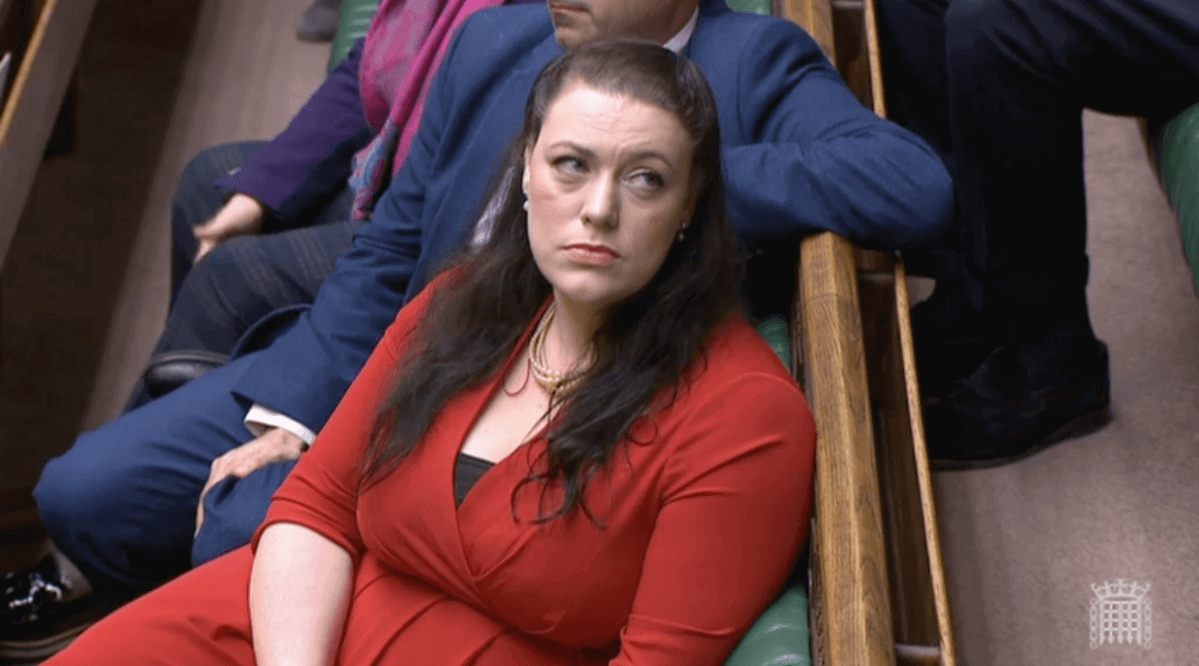The newly-appointed chair of the United Kingdom’s (UK) Foreign Affairs Committee, Alicia Kearns, called China a “terrorist state,” saying the two countries are already at war. British Foreign Affairs Committee Chief Calls China a “Terrorist State”
In a letter to Foreign Secretary James Cleverly, Kearns urged the government to respond strongly to a recent attack by Chinese diplomats on a pro-democracy Hong Kong protestor at the Chinese consulate in Manchester last month. In fact, Consul General Zheng Xiyuan was involved in the incident.
The Chinese government has rejected claims of wrongdoing, asserting that it was the diplomats’ “duty” to protect the government and President Xi Jinping’s dignity.
The British government subsequently faced widespread criticism for its response to the incident after neither Cleverly nor any department ministers attended the meeting with the Chinese chargé d’affaires on the incident.
A spokesperson for the China Research Group stressed that the “weak response” is a “major contradiction” to the government’s recognition of the “threat” posed by Beijing.
The lack of contrition from CCP over what was a shocking assault is concerning, if not wholly surprising.
— Alicia Kearns MP (@aliciakearns) October 27, 2022
It is, sadly, consistent with Beijing’s aggressive foreign policy under Xi & why we have seen diplomatic relations with China become increasingly strained across the world. https://t.co/xc5jWYh1PQ
Keeping this in mind, Kearns stressed that attacks against a “peaceful demonstration” in the UK are “unacceptable,” calling for the perpetrators to be held accountable.
She stressed, “The Government must be prepared to send a clear message: that authoritarianism has no place on UK soil.” She emphasised the need to declare the attackers as “persona non grata” and demand their expulsion from the country over their violation of international laws on diplomatic relations.
Kearns noted that the UK has typically remained “focused on terrorists that behave like states rather than states behaving like terrorists.” In this regard, she called for British authorities to “build resilience within [the] system.”
In a sharp statement, Kearns declared, “The reality is, whether we like it or not, we are in a form of warfare with China.”
Shocking video spreading on HK Telegram channels showing someone from the PRC Consulate in Manchester kicking down pro-democracy signs.
— Luke M (@McWLuke) October 16, 2022
A protestor then appears to have been dragged behind the Consulate gates and beaten by consulate staff. pic.twitter.com/tntvTz38DY
She also called for an investigation into China’s “overseas police stations” in the UK to assess their legality. This follows the release of a report by rights group Safeguard Defenders last month that the Chinese government is running 54 unofficial police stations across the globe, including the UK, to target dissidents and pressure them to return to China.
The report echoed and built on claims by the Woodrow Wilson Center’s Kissinger Institute on China and the United States in April, when it was reported that China has partnered with at least 44 other countries to “harass, detain, and extradite” tens of thousands of Uyghur Muslims.
In other related developments, Minister of State for Security Ton Tugendhat announced on Thursday that Prime Minister Rishi Sunak plans to ban all 30 Chinese-funded Confucius Institutes from British universities, saying they “pose a threat to civil liberties in many universities.” Although they claim to be centres to teach Mandarin and Chinese culture, the institutes have been criticised for their role in pushing back against criticism of Xi’s Chinese Communist Party.
In fact, Sunak highlighted during his Conservative Party leadership bid in July that China is the “largest threat to Britain and the world’s security.” He criticised his opponent Liz Truss for being too “soft” on China and vowed to crack down on the Confucius Institutes for their role in promoting “Chinese soft power.”
Sunak has also vowed to “expand” British intelligence agency MI5’s “reach” to ensure greater protection to British businesses and universities against Chinese “industrial espionage” in order to safeguard intellectual property.
Furthermore, Sunak has taken aim at China’s perceived debt-trap diplomacy in developing countries and raised concerns about rights abuses in Hong Kong and Xinjiang, saying it “tortures, detains, and indoctrinates” its own citizens.
Sunak has been equally vocal about the danger of Chinese acquisitions of local companies, particularly of “strategically sensitive tech firms.”
Some of these concerns are believed to have been discussed during Foreign Secretary James Cleverly’s participation in discussions with G7 partners yesterday, during which the British official highlighted the “role of China in the wider world.”
A statement released by the British government prior to the meeting said G7 foreign ministers would “discuss the situation in Taiwan, particularly following the 20th National Congress of the Chinese Communist Party last month.”
1/ China and the Chinese Communist Party represent the largest threat to Britain and the world’s security and prosperity this century.
— Rishi Sunak (@RishiSunak) July 25, 2022
Read this thread👇on how I will face down China. pic.twitter.com/VSD88gfG68
Cleverly said in an interview with Channel News Asia in September that while the UK wants a “healthy partnership” with China, it is “not quite there yet.” He underscored that the choice remains with China, noting that their friendship is contingent on Beijing “fully” complying with international laws of the United Nations and the World Trade Organisation.
In this regard, Cleverly stressed that China will have to “change some of [its] behaviours.” He emphasised that the British government is particularly concerned about the treatment of minorities, particularly the Uyghur Muslims, and the erosion of democracy in Hong Kong.

